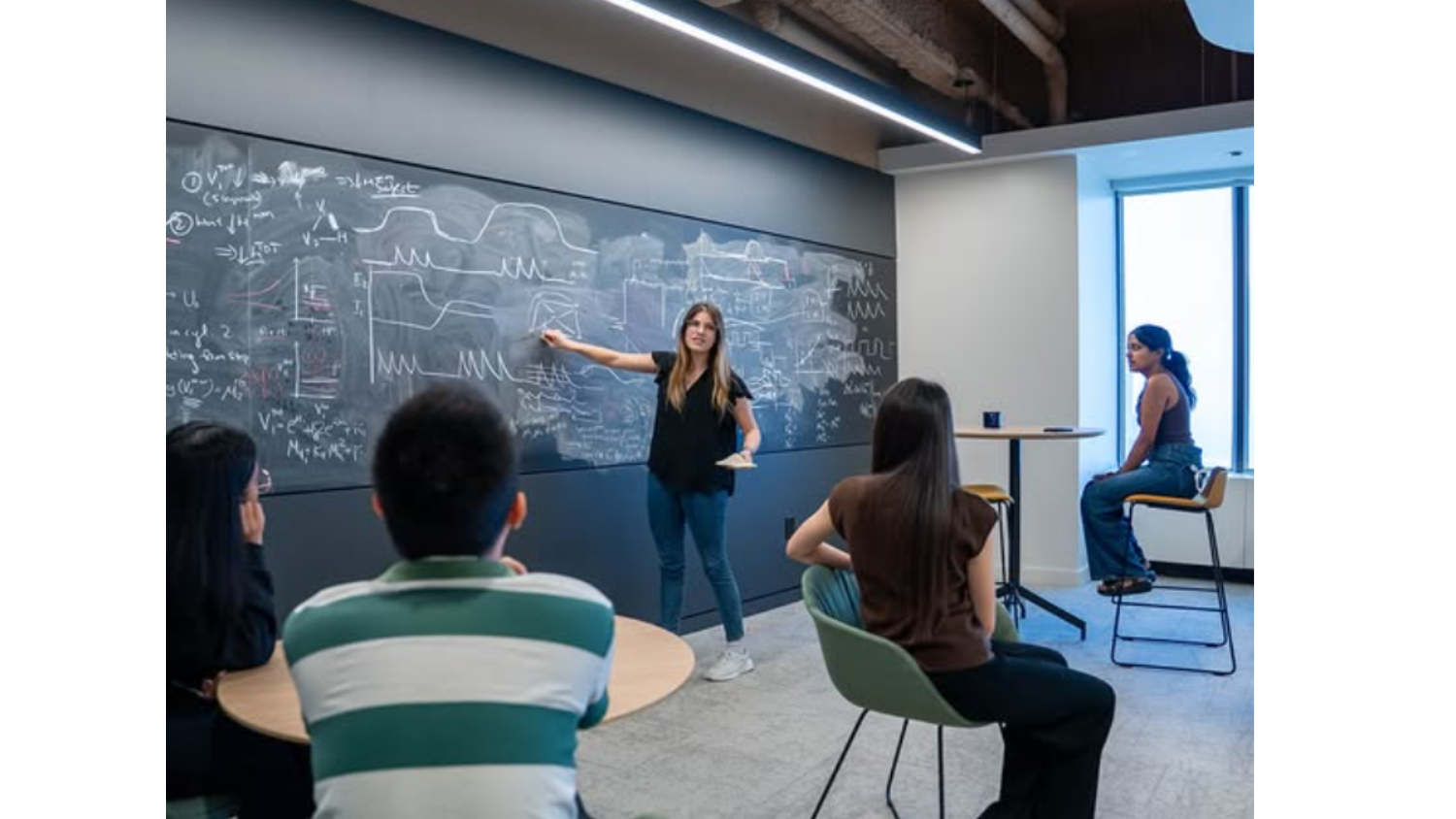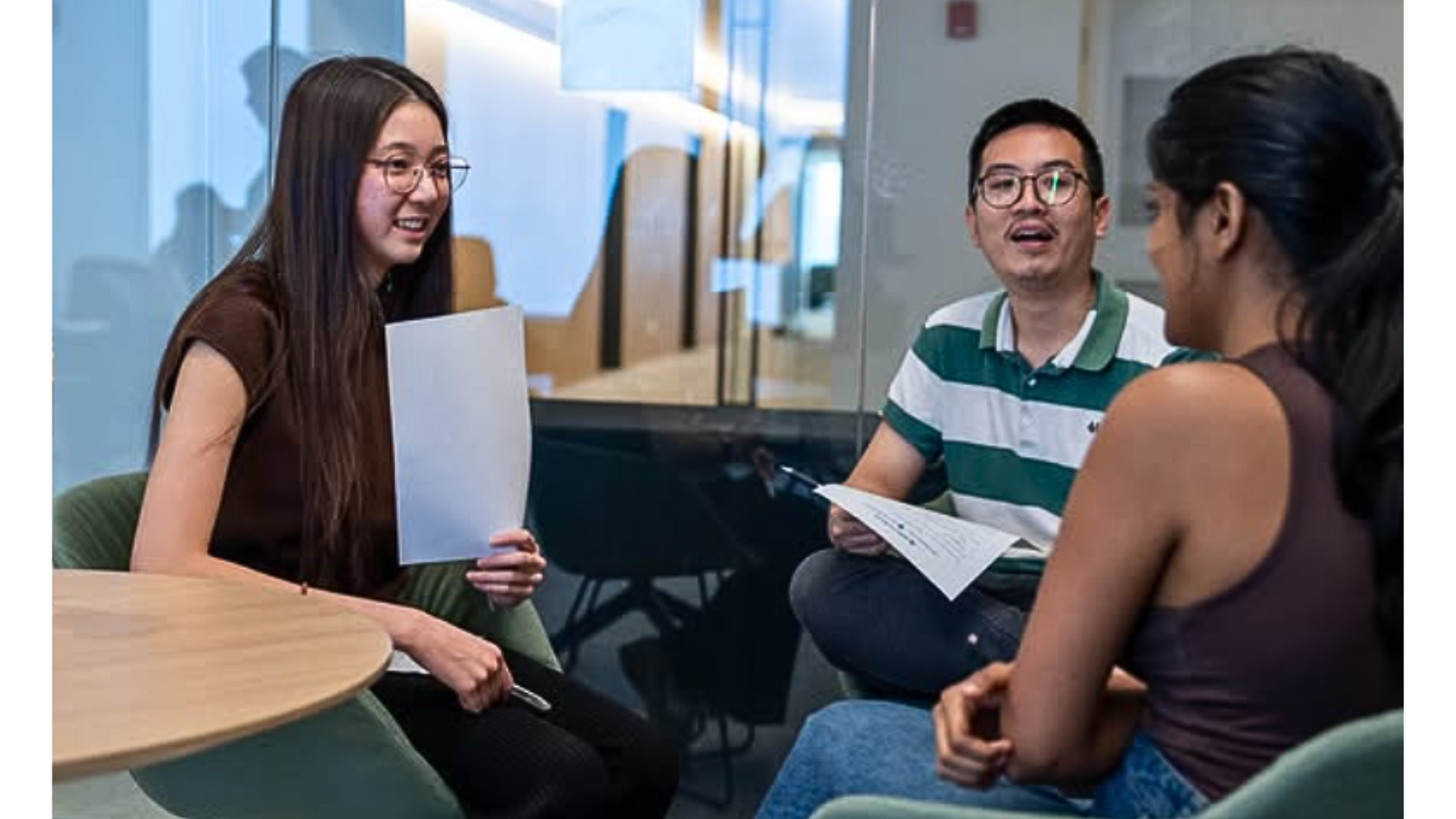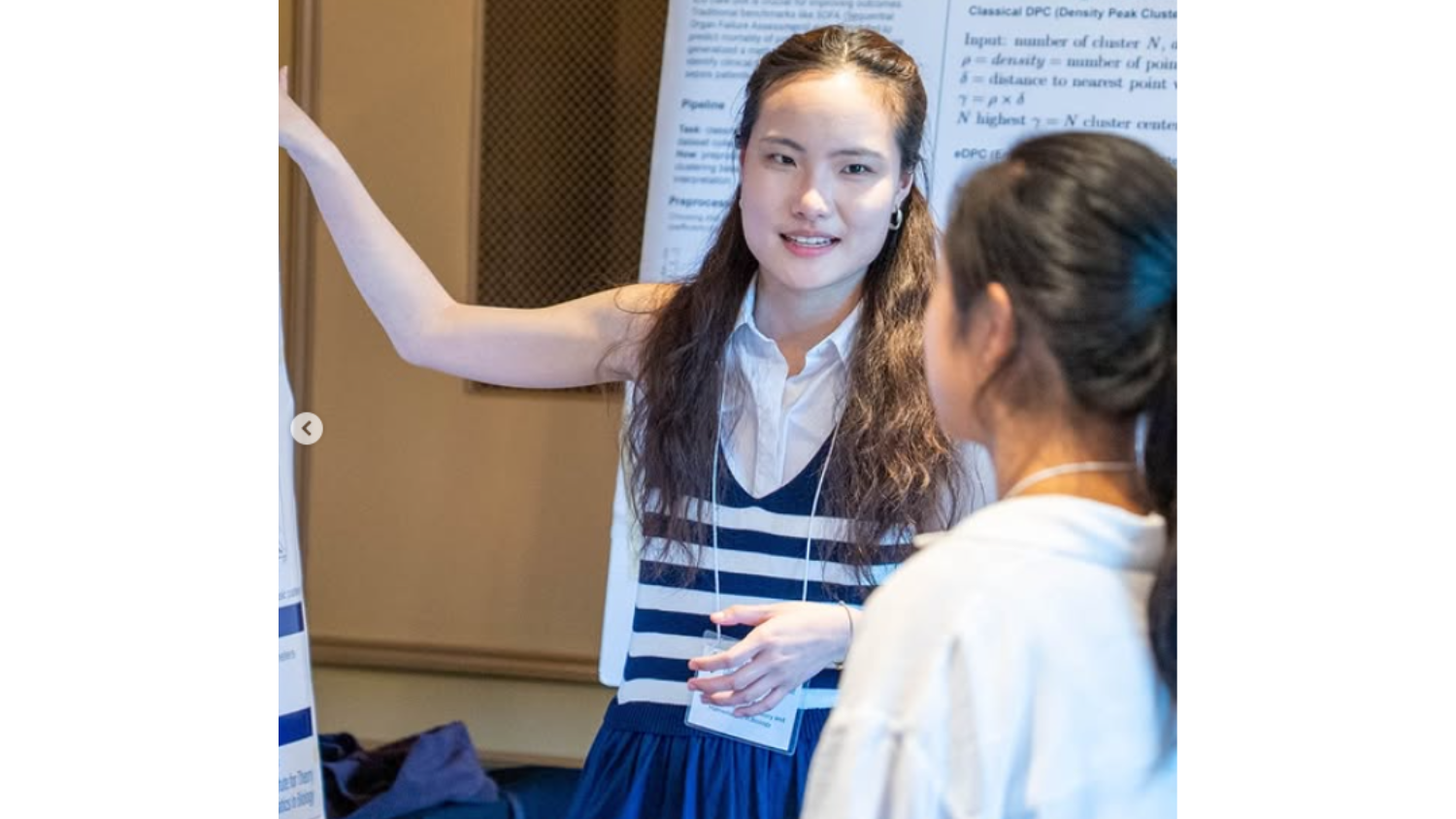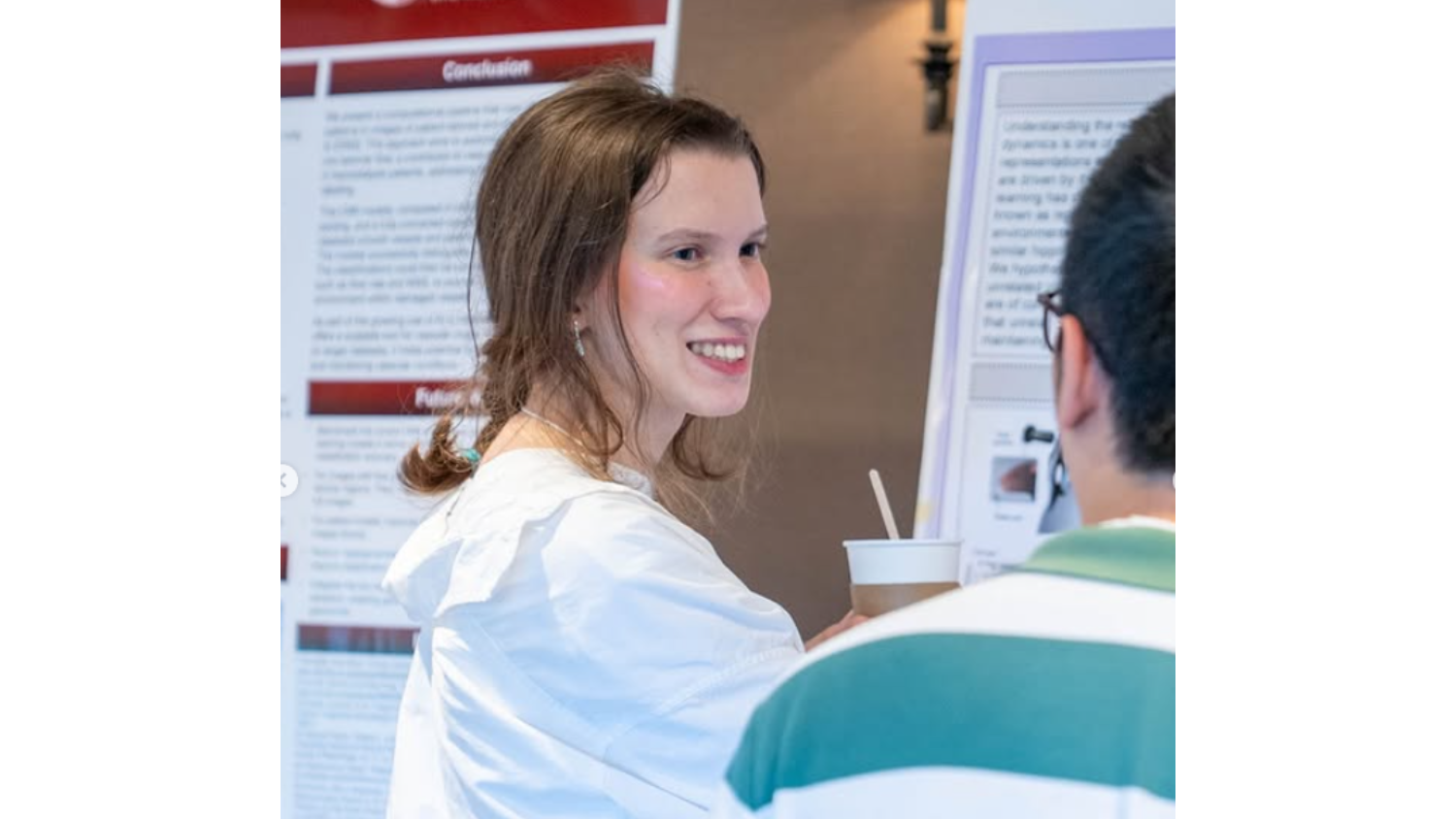Why Early Research Opportunities Matter: Building the Next Generation of Scientists in Chicago
Undergraduate student research experiences in science, technology, engineering, and mathematics offer a springboard to graduate school program enrollment and scientific progress in the Chicago region and beyond.
In early 2025, amid drastic changes to federal support for science, the National Science Foundation (NSF) informed many research institutions in Chicago and beyond that funding through their Research Experiences for Undergraduates (REU) program would be cut. Such a change left institutions across the country scrambling to find alternative support and forced others to cancel their summer REUs altogether.
Undergraduate summer research programs provide immersive, hands-on research opportunities in critical areas like quantitative biology, molecular engineering, environmental science, and more.
As the path to scientific discovery often begins with aspiring scientists being given opportunities to test their thoughts and theories with the support and guidance of talented teachers, mentors, and peers, these programs offer more than summer employment — they’re career launching pads.
Data supports this notion. Early exposure and access to scientific research opportunities is a key predictor of whether students pursue advanced degrees and careers in science, technology, engineering, and mathematics (STEM). Programs like the NSF REUs make such experiences more accessible for students whose undergraduate institutions lack substantial research infrastructure, and they expand the diversity of students in the STEM pipeline.
Beyond their summer research, these up-and-coming scientists may use their experiences to help secure graduate school placement or STEM jobs, often times in the same city where their undergraduate experience(s) took place. With the ability to train and retain science talent, institutions offering undergraduate research opportunities bolster their region's capacity to advance scientific discovery and innovation.
With the NSF’s pivot and other adjustments in local and federal scientific funding, institutions offering undergraduate summer research programs are navigating an evolving landscape. Ultimately, NSF funded 75% fewer REUs in 2025 relative to their usual funding patterns. Many previously-funded institutions had experienced high renewal rates (80% or higher on average) across years of making requests.
Declining funding raises concerns about the future of science in the United States. While continued investment in undergraduate research is critical, research institutions are often forced to make hard decisions about where to allocate resources.
In order to support Chicago-based science education and training, and in collaboration with other private funders, Walder Foundation contributed over $500,000 to five Chicago-area research institutions to ensure that their summer undergraduate research programs would persist through this most challenging time. These grants enabled 40 students accepted into the programs to receive stipends, housing, and mentorship, removing financial barriers that often prevent participation. Without such funding, including Walder Foundation’s contributions, some of these programs may have been cancelled for the summer.
But the story here isn’t just about funding. It’s about the long-term value of programs that give students a chance to do real science early in their academic journeys. It’s about the mentors who guide them, the peers who inspire them, and the discoveries, both scientific and personal, that happen along the way.
Let’s take a closer look at one Chicago-area program’s Summer 2025 efforts and successes.
Research Experiences for Undergraduates: Spotlight on a Northwestern University Program
Despite receiving strong reviews, Northwestern University’s (NU) Quantitative Biology Research Experience for Undergraduates (QBREU) renewal application to the NSF was declined, with news received in January 2025.
The QBREU leverages NU's interdisciplinary research strengths, including the NSF-Simons National Institute for Theory and Mathematics in Biology (NITMB), to train the next generation of scientists on the interface between mathematics and biology in and for a changing world.
“Technological advances have transformed biomedical research into a data-intensive enterprise,” shares Rosemary Braun, Ph.D., Associate Professor of Molecular Biosciences and (by courtesy) Engineering Sciences and Applied Mathematics at Northwestern University and the principal investigator of the undergraduate summer research program. “To take full advantage of this wealth, we need experts from multiple fields to come together collaboratively: people with the biology expertise to understand the underlying mechanisms and design thoughtful experiments, as well as people with the mathematical expertise to develop new strategies to analyze the data and develop models that can answer questions that experiments can't probe.”
Collaborating at this interface requires all sides to understand, value, and communicate with their counterparts.
“Our goal is to entice students with deep mathematical interests to come to this interface and prepare them to collaborate meaningfully,” Braun shares.
Undergraduate students enrolled in the program worked on a variety of research projects, running the gamut from understanding evolutionary patterns in microbiomes, to modeling blood flow in kidney disease, to analyzing patterns of neuronal activity.
Outside of conducting research, the students also took part in educational and career development workshops, some of which provided out-of-the-box training techniques for greater student development. For example, one workshop aimed to help students become better science communicators by training them on improvisational comedy techniques.


All of the students presented work at the NITMB Math-Bio Convergence Conference, which brought over 250 attendees from around the world, in August 2025.
"At the NITMB conference, I got to see our students present their posters,” Braun reflects. “They demonstrated impressive scientific maturity about their topics, presented their findings with poise, and answered questions thoughtfully. Unless you knew, you would not have guessed that they were undergrads! They were young scientists; full members of our mathematical biology community.”


Feedback shared by the students underscores their appreciation of being able to conduct research and to grow personally over the summer. During a mid-program review, one student shared: "We're like, actually immersed in a lab. And we go from 9 to 5. I feel like it's nice to see what a Ph.D. looks like and what an academic research career looks like. And I feel like I'm getting more out of seeing other researchers than just reading about them."
Another student told the evaluation team that they feel more connected to their faculty mentor. "[Before] I didn’t feel as comfortable talking to the PIs as I would feel talking to like my immediate mentor and students. But right now, this summer yeah, it's been amazing. I feel very comfortable.”
As Chicago continues to grow as a center for interdisciplinary research and innovation, programs like these are helping ensure that the next generation of scientists are prepared. Undergraduate STEM research and learning is a critical component of long-term science innovation and stability.
Please note: To learn more about other undergraduate research programs funded by Walder Foundation but not profiled in this article, sign up for Walder Foundation’s e-news and follow our social media channels.
Other articles from Walder Foundation-funded institutions include:
Not Your Average Summer Interns from Chicago Botanic Gardens
Undergraduate Summer Researchers Push Boundaries in Synthetic Biology from Northwestern University
NSF-Simons NITMB Welcomes Second Annual Cohort of Summer Undergraduate Research Program Participants from NSF-Simons National Institute for Theory and Mathematics in Biology
Research Experience for Undergraduates program Develops Tomorrow’s Scientists from University of Chicago
Stay engaged with efforts from our Science Innovation pillar: walderfoundation.org/science-innovation
Get more stories like this delivered to your inbox.
Sign up with your email address to receive news and updates.











